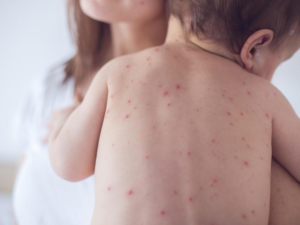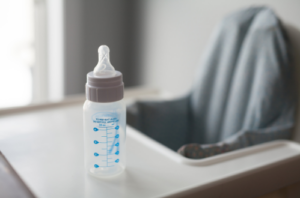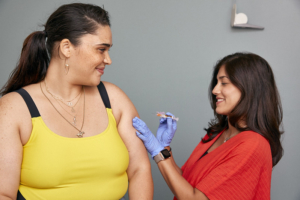Per the Centers for Disease Control (CDC), from January 1 to December 31, 2019, 1282 individual cases of measles were confirmed in 31 states, including New Hampshire, Maine, and Massachusetts. This is the greatest number of cases reported in the U.S. since 1992 and since measles was declared eliminated in 2000.
What are the symptoms? Initially fever, cough, runny nose, and red eyes, followed 2-4 days later by rash which starts on head and moves down the body toward the toes (rash lasts a few days and disappears in the same pattern). Measles has a long incubation period of 10 days to 2 weeks after exposure. Therefore, individuals infected with measles are contagious from 4 days before to 4 days after the classic rash appears. Respiratory droplets containing the measles virus are spread by cough or sneeze, and the virus can live on surfaces for at least 2 hours.
Why vaccinate? 90% of those not immunized against measles are infected if exposed! Complications can be very serious, even life-threatening, and include pneumonia (lung infection) and encephalitis (brain inflammation).
The standard vaccination schedule recommends first MMR (measles-mumps-rubella) vaccine at 12-15 months, but the first dose of MMR can be given as young as 6 months, and the CDC recommends giving it to any child >6 months old before international travel. A dose of MMR can be given within 72 hours of exposure to measles if the child is asymptomatic to prevent infection and provide protection from subsequent exposure. Once any child is >12 months old, we can give 2 doses of MMR separated by at least 28 days to complete the series, though the standard vaccination schedule currently has the second MMR dose given at age 4-5 years, prior to beginning kindergarten.
If you have any questions regarding your child’s immunizations, please feel free to call our offices at 603-436-7171 (Portsmouth) or 603-929-3838 (Hampton).







